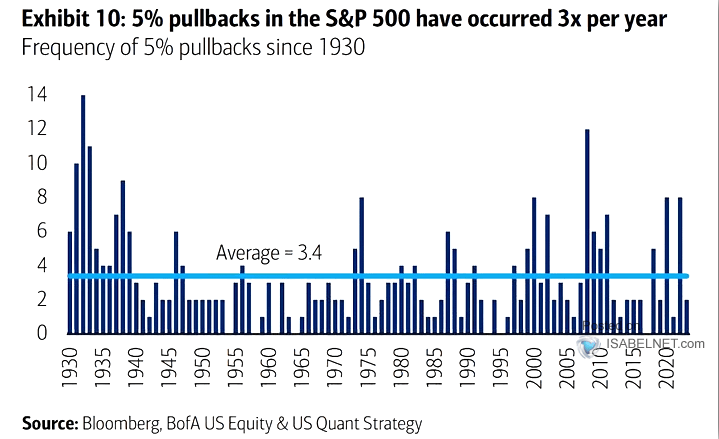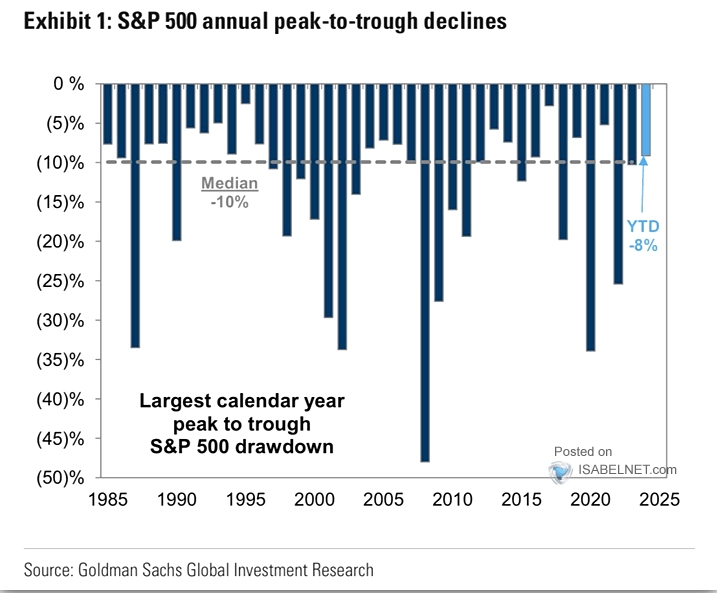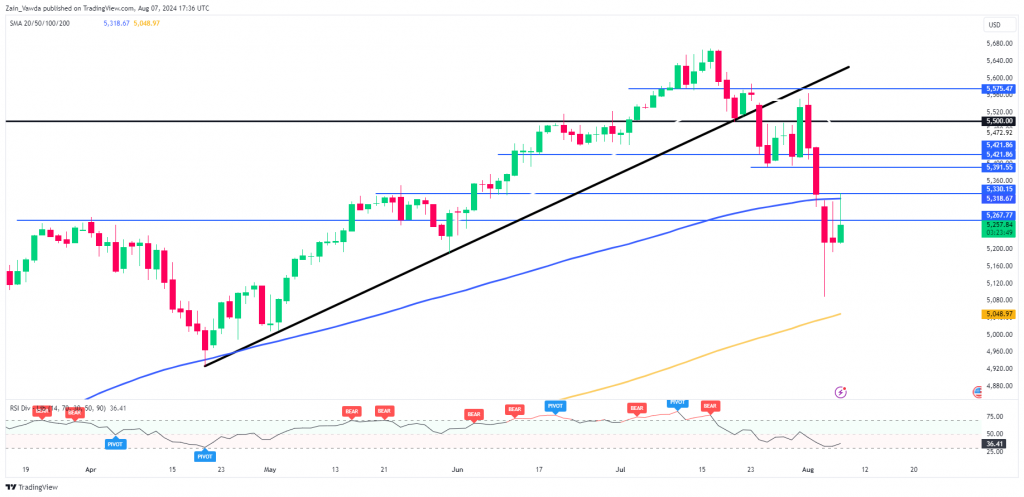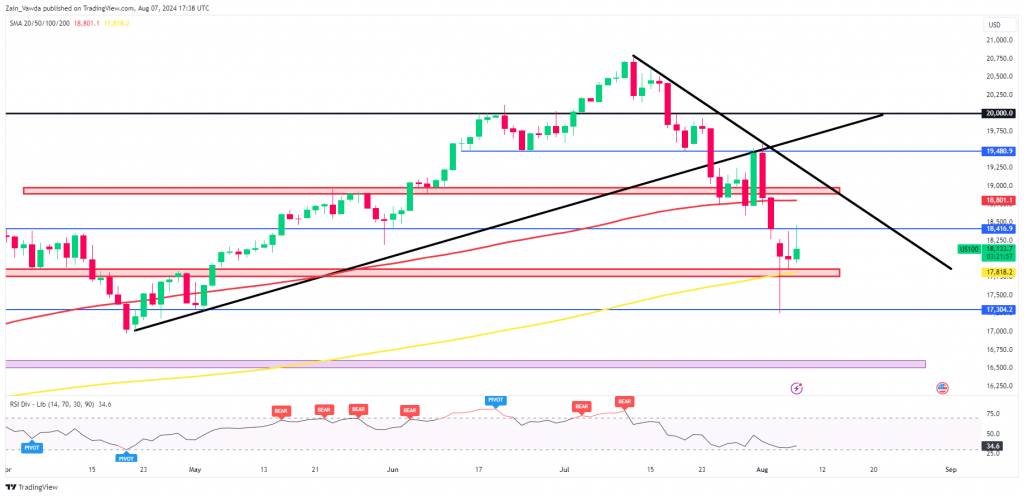- Pullbacks of 5% or more in the S&P 500 are relatively common, having occurred on average three times per year since 1930.
- Despite a recent market correction, the S&P 500 is still up 10% year-to-date, and the Nasdaq 100 is up 8.5% year-to-date.
- The S&P 500 faces technical resistance at the 100-day moving average (between 5330 and 5267), with further resistance expected at 5391 and 5500.
- The Nasdaq 100 has support around 17800 (the 200-day moving average) and faces resistance at 18416 and 18800 (the 100-day moving average).
Wall Street’s primary indexes seemed to have found some stability following a blockbuster start to the week. As the US session commenced, all major S&P sectors were trading higher, buoyed by improved market sentiment and a dovish stance from Japanese policymakers. However, minutes before the close, most indexes are trading down again.
The market volatility experienced since late last week was partly triggered by the Bank of Japan’s surprise rate hike, prompting many institutions to unwind carry trades and cover positions. Additionally, fears of a global recession exacerbated the situation.
In early trading today, Amazon (NASDAQ:AMZN) led the gains, rising about 2.6%, though most gains were given up later in the day. Focus has shifted back to earnings, with Airbnb Inc (NASDAQ:ABNB) struggling, down 15%. The company forecasted third-quarter revenue below estimates and warned of shorter booking windows and challenges ahead in H2 2024.
It’s essential to maintain perspective. Despite the recent correction, the S&P 500 is still up around 10% year-to-date, and the Nasdaq 100 is up around 8.5% year-to-date.
Despite this week’s market panic, pullbacks of 5% or more in the S&P 500 are relatively common. Since 1930, the S&P 500 has experienced an average of three 5% pullbacks per year.

Source: Bloomberg, BofA Research, Isabelnet
Another chart I found interesting which relates to the S&P 500 shows a median peak-to-trough decline of around 10% since 1985. Comparing this to the recent 8% decline in the S&P 500, it offers some food for thought. Market participants often swing from one extreme to another, making these charts valuable for providing insight and perspective on recent market movements.

Source: Goldman Sachs Global Investment
Technical Analysis S&P 500
From a technical standpoint, the S&P 500 has gained some traction today following a period of consolidation on Tuesday. However, numerous technical hurdles remain for the bulls if the rally is to continue.
Today’s rally encountered resistance at the 100-day moving average, situated in a confluence zone between 5330 and 5267. This area presents several challenges, with further resistance expected at 5391 before the psychological level of 5500 becomes a focal point.
S&P 500 Daily Chart, August 7, 2024

Source: TradingView (click to enlarge)
Support
- 5193
- 5092
- 5048 (200-day MA)
Resistance
- 5330
- 5391
- 5421
- 5500
Nasdaq 100
The Nasdaq 100 chart closely mirrors the S&P 500, featuring a strong support base around the 17800 handle where the 200-day moving average is located.
Earlier this week, the 17300 support area was tested on Monday, but buyers intervened, pushing the price back above the 200-day moving average.
On the upside, immediate resistance was encountered today at 18416. Further resistance lies at the 100-day moving average at 18800, before the descending trendline comes into focus.
Nasdaq 100 Daily Chart, August 7, 2024

Source: TradingView (click to enlarge)
Support
- 17300
- 17000
- 16600
Resistance
- 18416
- 18800
- 19000
